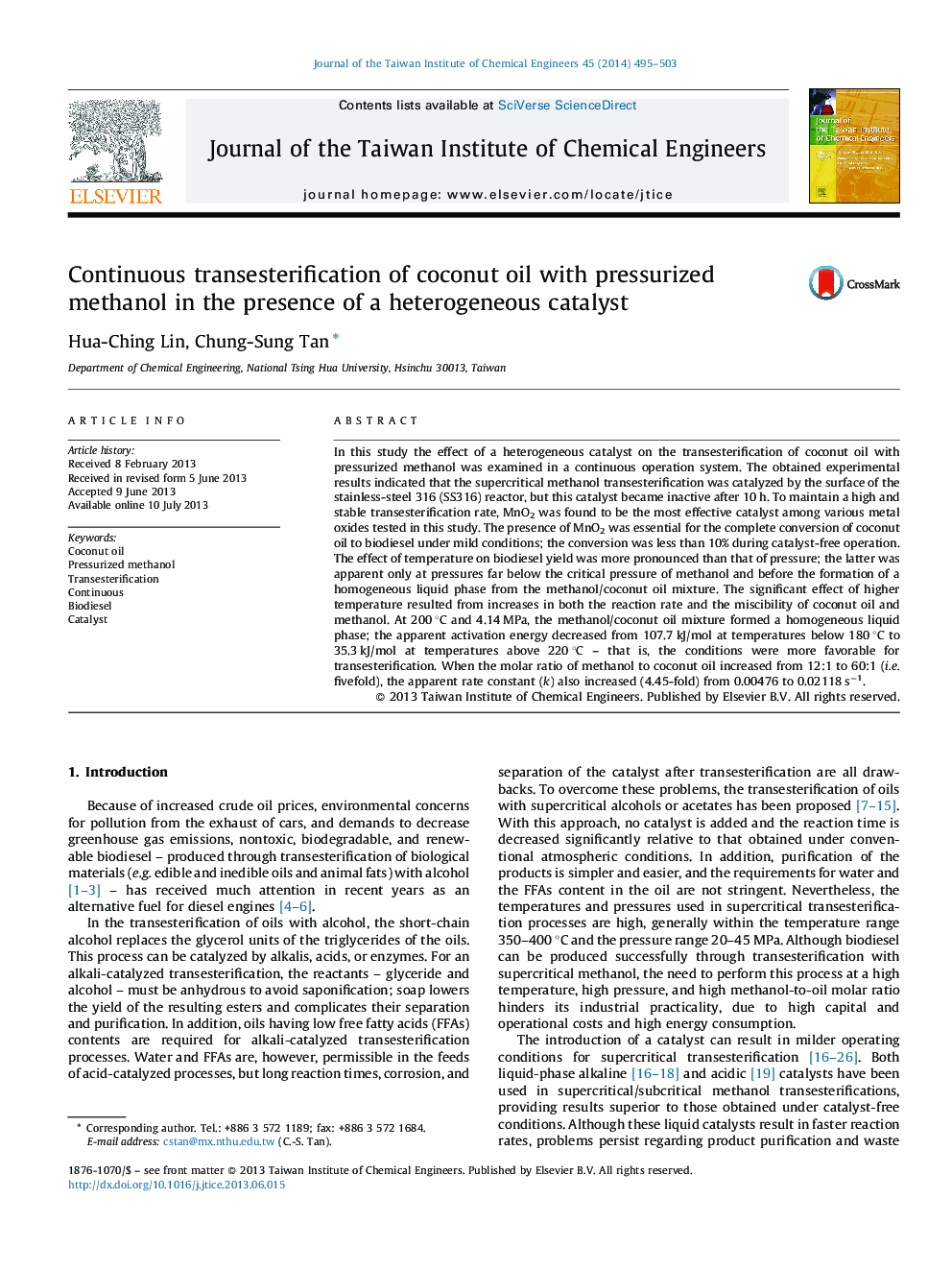| کد مقاله | کد نشریه | سال انتشار | مقاله انگلیسی | نسخه تمام متن |
|---|---|---|---|---|
| 691388 | 1460433 | 2014 | 9 صفحه PDF | دانلود رایگان |
• Supercritical methanol transesterification was catalyzed by SS316 reactor surface.
• MnO2 was the most effective catalyst among the metal oxides tested.
• Temperature effect on biodiesel yield was more pronounced than pressure effect.
• Activation energy was significantly reduced when complete miscibility occurred.
• As methanol to oil ratio increased, the apparent rate constant k also increased.
In this study the effect of a heterogeneous catalyst on the transesterification of coconut oil with pressurized methanol was examined in a continuous operation system. The obtained experimental results indicated that the supercritical methanol transesterification was catalyzed by the surface of the stainless-steel 316 (SS316) reactor, but this catalyst became inactive after 10 h. To maintain a high and stable transesterification rate, MnO2 was found to be the most effective catalyst among various metal oxides tested in this study. The presence of MnO2 was essential for the complete conversion of coconut oil to biodiesel under mild conditions; the conversion was less than 10% during catalyst-free operation. The effect of temperature on biodiesel yield was more pronounced than that of pressure; the latter was apparent only at pressures far below the critical pressure of methanol and before the formation of a homogeneous liquid phase from the methanol/coconut oil mixture. The significant effect of higher temperature resulted from increases in both the reaction rate and the miscibility of coconut oil and methanol. At 200 °C and 4.14 MPa, the methanol/coconut oil mixture formed a homogeneous liquid phase; the apparent activation energy decreased from 107.7 kJ/mol at temperatures below 180 °C to 35.3 kJ/mol at temperatures above 220 °C – that is, the conditions were more favorable for transesterification. When the molar ratio of methanol to coconut oil increased from 12:1 to 60:1 (i.e. fivefold), the apparent rate constant (k) also increased (4.45-fold) from 0.00476 to 0.02118 s−1.
Journal: Journal of the Taiwan Institute of Chemical Engineers - Volume 45, Issue 2, March 2014, Pages 495–503
